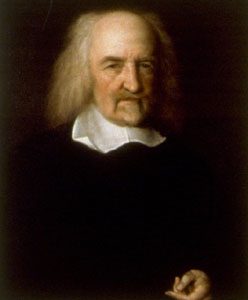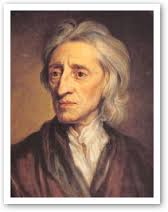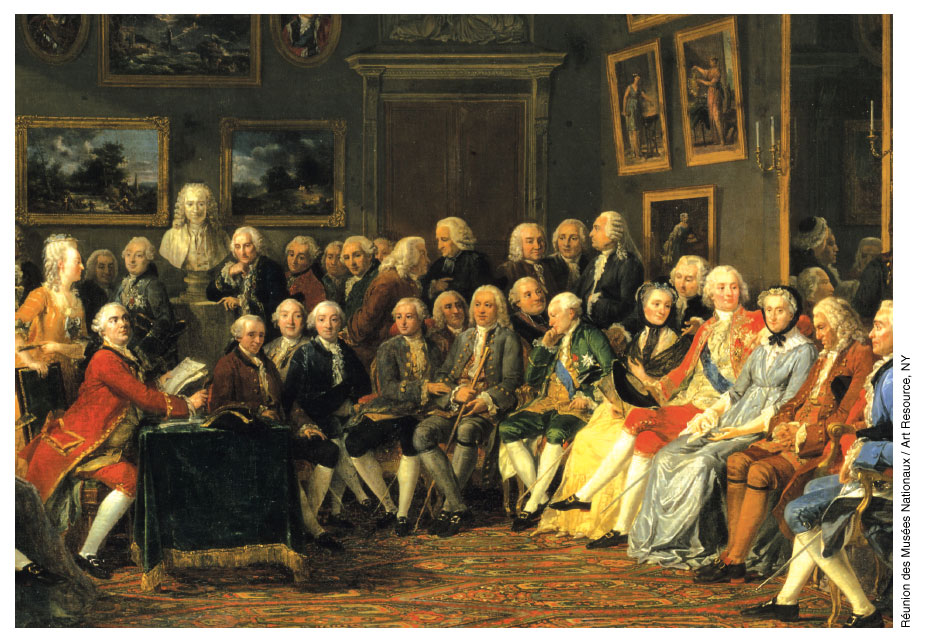The enlightenment was a time in colonial history of innovative and influential thinkers. These men each had ideas about how government should be run and wrote books explaining just how exactly it could be done. Many of the ideas proposed during this time would have very far-reaching influence considering our government today, the American government, operates according to many of the principles that these very men brought to the table. These influential minds would have a reach of influence spanning hundreds of years.
One of the first of the Enlightenment thinkers, a man by the name of Thomas Hobbes, proposed in his fa mous writing, “Leviathan”, that an authoritarian government was the best and most effective form of government. A constitutional monarchy. Hobbes believed that men, by work of nature, were naturally greedy and selfish. He believed that there needed to be a strong central government in order to maintain security and equality in society. He was willing to give up his personal rights in exchange for being protected by the ruler (the king), this is called the social contract.
mous writing, “Leviathan”, that an authoritarian government was the best and most effective form of government. A constitutional monarchy. Hobbes believed that men, by work of nature, were naturally greedy and selfish. He believed that there needed to be a strong central government in order to maintain security and equality in society. He was willing to give up his personal rights in exchange for being protected by the ruler (the king), this is called the social contract.
John Locke, another enlightenment thinker, believed in the consent of the governed, meaning that laws and regulations would be decided on in cooperation with the citizens. He believed that people are born good with natural rights, and that their environment influences them and changes them either for better or for worse. He, along with Thomas Hobbes, believed in the social contract, that the government could strip away some personal rights and freedoms for protection of citizens’ natural rights. He however, believed in the power of the citizens to overthrow the government if said government was not performing correctly or treating its citizens unfairly. His contributions to the enlightenment would become inspiration for not only the Declaration of Independence but also the future Constitution of the United States as well as amendment XIV of the United States constitution.
Baron de Montesquieu of France, wrote the spirit of the laws and believed that government existed to protect its peop le. He believed that people were influenced by their environment and that society would be corrupted if people were either too wealthy or too indigent. He believed in a Limited Monarchy and in separation of power in government. He advocated a three branch government and coined the term “checks and balances”. His influence on american history, in particular our government, is the basic structure of our government in the constitution which he proposed as a successful form of government.
le. He believed that people were influenced by their environment and that society would be corrupted if people were either too wealthy or too indigent. He believed in a Limited Monarchy and in separation of power in government. He advocated a three branch government and coined the term “checks and balances”. His influence on american history, in particular our government, is the basic structure of our government in the constitution which he proposed as a successful form of government.
Jean Jacqu es Rousseau, another enlightenment thinker, wrote the Social Contract. He believed that people confide in each other, not the government, in order to maintain civility. Rousseau believed in surrendering individual will to the general will of the people. Rousseau stated that people are born good but are corrupted by society. The power of the government lays in the hands of the people and supreme authority rests with general will, the majority decision, and that the people have the power to revolt.
es Rousseau, another enlightenment thinker, wrote the Social Contract. He believed that people confide in each other, not the government, in order to maintain civility. Rousseau believed in surrendering individual will to the general will of the people. Rousseau stated that people are born good but are corrupted by society. The power of the government lays in the hands of the people and supreme authority rests with general will, the majority decision, and that the people have the power to revolt.
All in all, these men influenced not only the political shape of this nation for the future and onward, but also the social structure and the inner workings of the entire nation as a whole. A piece of each of these men is forever deeply engraved in the heart of this nation.
The following links provide an excellent base for further research on both the enlightenment thinkers which you have just read about and the many other enlightenment thinkers.
http://www.regentsprep.org/regents/global/themes/goldenages/enlight.cfm

